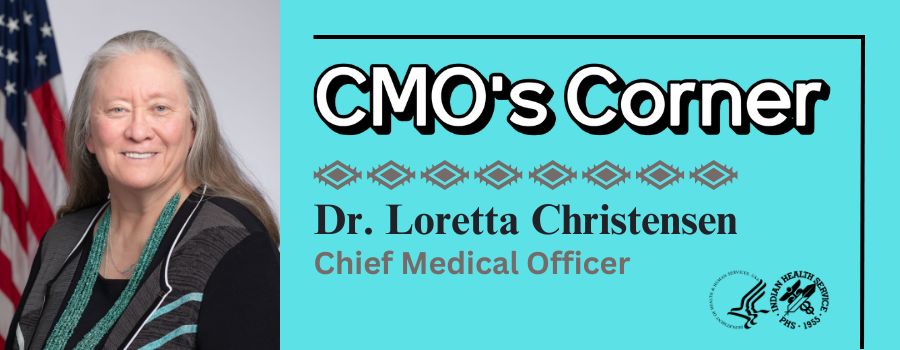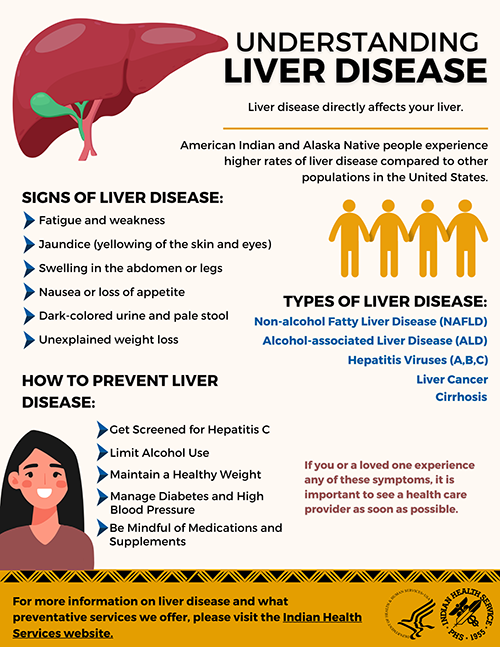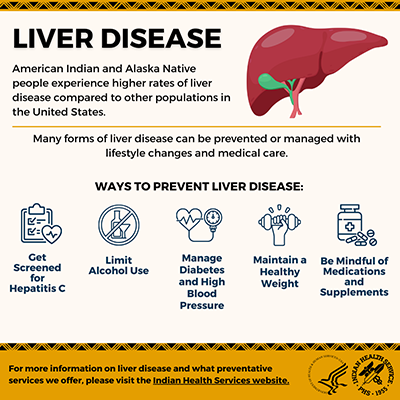
Protecting Our Health: Understanding Liver Disease
Understanding Liver Disease

The liver is one of the most essential organs in our bodies, working hard to remove toxins, support digestion, and store essential nutrients. Yet, liver disease is a growing health concern for American Indian and Alaska Native communities, affecting individuals and families across generations. Understanding the risks, symptoms, and ways to prevent liver disease can help protect our health and the well-being of our communities.
Why Liver Disease Matters in Our Communities
American Indian and Alaska Native people experience higher rates of liver disease compared to other populations in the United States. Factors such as hepatitis C, alcohol use disorder, diabetes, and obesity contribute to these growing issues. Cirrhosis (scarring of the liver) and liver cancer are on the rise, making early detection and prevention more important than ever.
One of the major concerns is non-alcohol fatty liver disease (NAFLD), which is linked to diabetes and obesity. Many people with NAFLD do not realize they have it because it often has no symptoms until it reaches an advanced stage. Another serious condition is alcohol-associated liver disease (ALD), which can lead to permanent liver damage over time.
Know the Signs of Liver Disease
Liver disease often develops silently, with few or no symptoms in the early stages. As the disease progresses, symptoms may include:
- Fatigue and weakness
- Jaundice (yellowing of the skin and eyes)
- Swelling in the abdomen or legs
- Nausea or loss of appetite
- Dark-colored urine and pale stool
- Unexplained weight loss
Steps to Prevent Liver Disease
 The good news is that many forms of liver disease can be prevented or managed with lifestyle changes and medical care. Here are some key ways to protect your liver:
The good news is that many forms of liver disease can be prevented or managed with lifestyle changes and medical care. Here are some key ways to protect your liver:
- Get Screened for Hepatitis C – American Indian and Alaska Native people have higher rates of hepatitis C, which can lead to severe liver damage if untreated. A simple blood test can detect the virus, and new treatments can cure it in most cases.
- Limit Alcohol Use – Drinking too much alcohol over time can cause permanent liver damage. If you need support, IHS offers resources for those seeking help with alcohol use.
- Maintain a Healthy Weight — Eating a balanced diet and staying active can prevent NAFLD and other obesity-related liver disease conditions.
- Manage Diabetes and High Blood Pressure – These conditions increase the risk of liver disease, but proper medical care and lifestyle choices can help control them.
- Be Mindful of Medications and Supplements — Some medications, herbal supplements, and over-the-counter relievers (such as acetaminophen) can harm the liver if taken in high doses. Always follow dosage instructions and talk to a health care provider.
Our Commitment to Your Health
Protecting our health is a community effort. Raising awareness and taking action today can ensure a stronger, healthier future for future generations.


